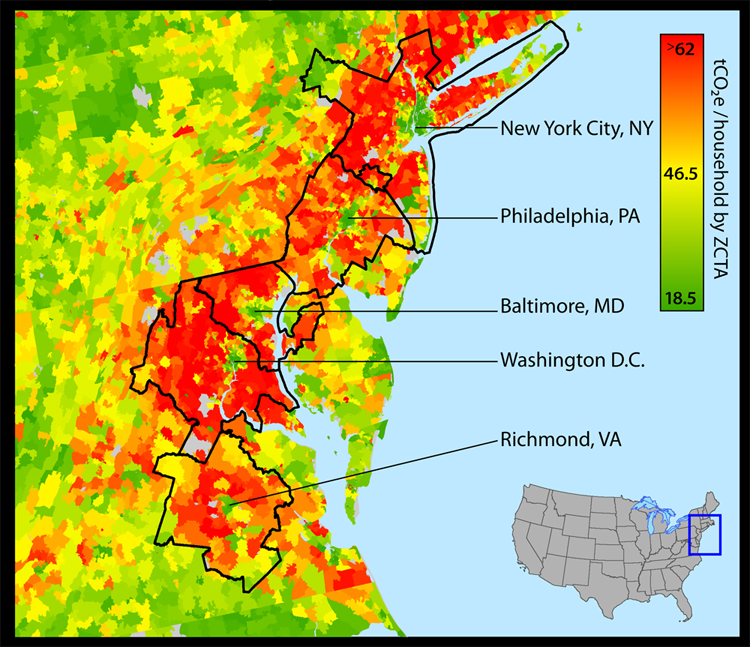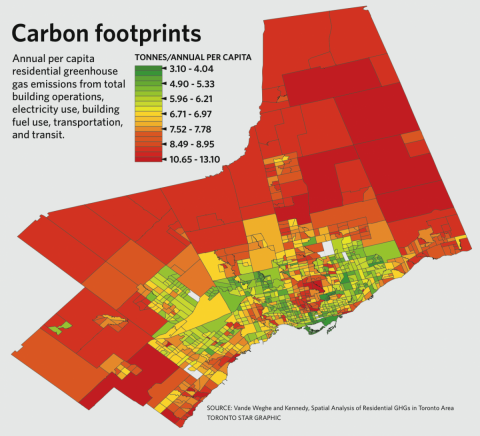When we sprawl out, we massively increase both our energy usage and our land usage. New neighbourhoods require the destruction of existing farmland, parkland and wetlands that can never be reclaimed. Meanwhile, studies of cities from across North America show that low-density suburbs emit 2-3 times more greenhouse gases than even medium-density urban areas.

In Toronto, per-person CO2 emissions in suburban areas were found to be 3-4 times higher than high-density areas near transit.

Spreading out where we live means more of us require cars for day-to-day life: in Canada, suburban households drive on average three times further than those in core areas. This is a huge issue when the average automobile emits more CO2 annually than 200 mature trees can remove from the air.
We need to legalize townhouses, multiplexes and small apartments across this city and make them economically feasible to build. This will reduce our environmental impact in a few ways:
Multi-family homes like duplexes, townhomes and small apartments require 30-40% less energy than single family homes to heat, cool and live in comfortably.
Denser, more mixed-use neighbourhoods will make it easier for everyone to reduce their dependency on cars, helping to reduce energy usage for transportation by as much as 50%.
Every new home accommodated within existing neighbourhoods is one that doesn't have to be built on top of natural land outside the city.
Step 1: Sign up for our mailing list.
We're empowering housing advocates with resources and information to make an impact. Get started by joining our mailing list.
Step 2: Follow us on socials. Visibility generates attention. Help us get our message out to people where they're at by following us and sharing liberally.
Step 3: Join Discord. Get to know other housing advocates, attend live events together, and build a movement towards change